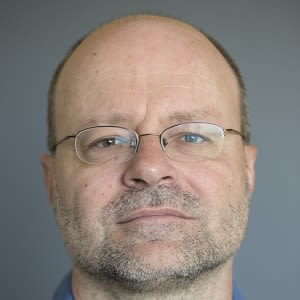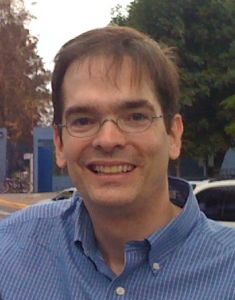Presented by:

Akos Ledeczi
Ledeczi is a CS Professor at Vanderbilt University. He has been working on [NetsBlox](https://netsblox.org), an extension that adds distributed computing capabilities and online collaboration to the Snap! for many years. He is also known for his highly popular [introductory programming MOOC](https://www.coursera.org/learn/matlab/) on Coursera.

Corey Brady
I'm an assistant professor of the Learning Sciences at Vanderbilt, where I also co-direct the Computational Thinking and Learning Initiative. I work to create learning environments that allow me and the teachers I collaborate with to support and study students' scientific, mathematical, and computational thinking.
Brian Broll
Brian Broll is a Research Scientist at the Institute for Software Integrated Systems at Vanderbilt University. He holds a Ph.D. from Vanderbilt University in Computer Science and a B.Sc. from Buena Vista University, majoring in mathematics education. His research interests include computer science education and model integrated computing.
Volunteer Hosts
Thanks for helping with Snap!Con 2020!
In this short talk, we present the results of a multi-disciplinary collaboration between earth scientists, education researchers and computer scientists, including undergraduate and graduate students and faculty. The goal of the project was to design a set of curricular components that teach about climate change and computational thinking in a synergistic manner. We utilized a Snap! extension called NetsBlox. NetsBlox is an open source, browser-based visual programming environment and corresponding cloud-infrastructure that integrates distributed programming capabilities at a level accessible for novice programmers. One of the new abstractions, Remote Procedure Calls (RPCs) provide students’ programs access to online services and data sources including Google Maps, weather, NOAA climate change data, and others, as well as services created by the end-user community and hosted on the NetsBlox server. RPCs enable students to create engaging and motivating projects grounded in real-world applications.
In studying climate change, we aimed for learners to discover patterns across modern and paleoclimate datasets, and to formulate hypotheses about causal relations between change in climate and data on components of the atmosphere as measured or recovered. This project has thus focused on data visualization and exploratory data analysis with large and diverse data sets. To enable secondary-school learners to engage with the data, we have focused on NetsBlox as a visual environment for iteratively refining data search and processing algorithms. Because the objective is to give learners a flexible set of tools for finding patterns and anomalies; for creating data proxies for human social impact on climate; and for proposing and testing causal relations, the work has been oriented toward platform advances that enable teachers to publish datasets and connect computational thinking with leading exploratory data analysis tools.
Discuss on the Snap! Forum
- Date:
- 2020 July 31 - 12:30 PST
- Duration:
- 30 min
- Room:
- Zoom 2
- Conference:
- Snap!Con 2020
- Type:
- Short Talk
- Track:
- Short Talk
- Difficulty:
- N/A